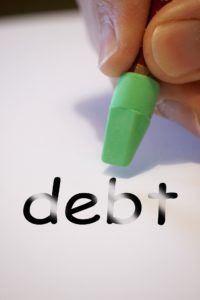If you think back to a stress-free time in your life, either you had no responsibilities or you had everything under control. Well, if your life is anything like the rest of us, the first option might have been during our pre-teen years and the latter is totally impossible. Sadly, a jus’ so di ting set(Translate – it’s just how life works). This post will focus on four simple ways to reduce financial stress.
Can we all stop and think of a time in our life when we were stress-free? Just think with me for a minute… Where would you be? Recreate the scenery right now.
For me it would be back when I was a child, playing with self-made toys with my neighbors and friends during summer vacation. You know those months when all you had to do was play, and your chores of course. But the top priority was play time and interacting with friends. The only stress we had was making sure that we completed our chores on time and deciding what teams we would be on. In Jamaica, it would probably be 90 degrees, brisk breeze… we’d be eating fruits from the trees, playing one game after the next. Looking forward to trips to the beach; to some new spot on the island you had never been; visiting relatives and friends. Laughter and fun was never in scarce supply. Ahhhh…
Life throws so many things our way; some real, others imagined. These circumstances can lead to stress of varying degrees. The focus of this post is on those of the financial kind. I know you know them. We probably can all speak from personal experience but that will not be the focus of this post. I want us to consider 4 simple things we can do to reduce that financial stress and recreate some of that feeling we had during the stress-free time in our lives, even if just for a short time.
My tips are loosely based on Dave Ramsey’s plan but scaled back based on my own experience and where I am on my journey.
Build up your emergency fund
This is for unforeseen eventualities that WILL pop up. For example, an unexpected car-related expense, a house repair, you get the picture. Since I am in the US the recommendation is to have at least US$1000. You can equate that to your own currency and decide what that figure should be for you. But make sure you have the emergency fund built up so, not if, but WHEN those curve balls come at you, you can dig in. But remember to replace it. It should always be available.
Plan your budget/expenses
When I say plan, I mean every dollar. Have you ever heard of the concept called zero-based budgeting? I hadn’t either, but it means that you should budget every last dollar until there is no money left in your account. I know it sounds strange but stay with me.
Now, this does not mean you should spend all your money, but it simply means that every dollar is accounted for, and get this… even for saving. See how that works! So you know when your funds are coming in, you look at all your categories(monthly bills, everyday expenses, fixed expenses, debt, giving , saving etc.) and you allocate all your income to each category as appropriate.
I must admit this was hard for me at first, but the more you do it the more you get used to it and you begin to see the value. That way when you have to spend money on say ice-cream for the kids, or shopping for those shoes you have been eyeing that are now on sale, there is no guilt. It’s planned for. And guess what, your stress levels go down.
Plan your payments weekly
This is one of my valuable tips. I started doing it and a couple weeks ago I skipped out on it and something unintended came up and I panicked. What happens when you panic, stress levels go up! There might not have been a need to panic but because I had lost control of exactly where things were I could not resolve it in my mind. Not until I sat down and caught up did I begin to feel more at ease. What this entails is every week(or however often you need), you look at all your upcoming bills or payments and schedule them to make sure they are paid on time. Some people have separate accounts for all the different categories but that’s a bit too much over head for me at this point. Try planning weekly and let me know how it works for you.
Last but not least,
Come up with a plan to get rid of your debt

Now this is no secret. I shared with you a few posts ago how I was able to overcome the medical debt trap during my pregnancy and the birth of my son. Some debt is unavoidable. I don’t know many people who can survive without debt so it would be unfair to say, do not get into debt. However, we should try to get out of it as soon as we can. Consumer debt… no brainer. That’s a given. That needs to happen fast. The only people who benefit from that kind of debt are the card companies. But other kinds of debt like cars, homes etc. we should try to reduce or eliminate as soon as possible.
I know it’s a tall order and I confess I do have debt. The stress factor comes in when you fall behind on your obligations and are eventually either staring the repo man or foreclosure in the face. All the more reason to try to reduce or eliminate them as soon as you can. This would be the ultimate financial peace where you owe no one. Wouldn’t that be grand!!
These tips are very simple so if you haven’t started they should be easy to adapt. For those of you who are farther along, please share. I am also on my journey to ultimate financial peace as well. I will be sharing with you any tips that I come up with that can help you. Feel free to share with me your strategies as well. Each one, teach one.
Please join my community by subscribing so you never miss a post. Please also follow me on my social media channels. Thank you again for stopping by and looking forward to sharing with you again.

